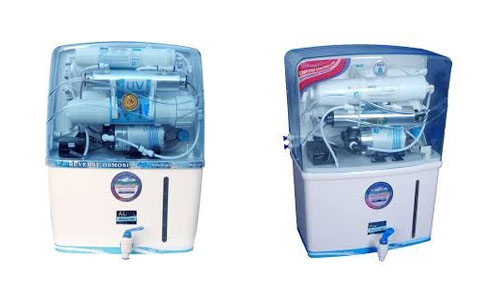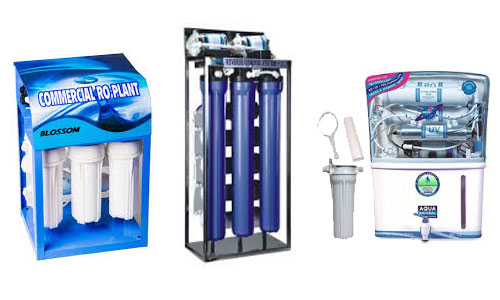We are Manufacturer, Supplier, Exporter of Domestic RO Purifier Systems, Domestic Reverse Osmosis Purifiers and our setup is situated in Pune, Maharashtra, India. We also provide Installation, Annual Maintenance Contract (AMC) Services, Operation And Maintenance Contract Services, Chemicals, Equipments, Spares (Spare Parts) for our whole product range.
Around the world, household drinking water purification systems, including a reverse osmosis step, are commonly used for improving water for drinking and cooking.
Such systems typically include a number of steps:
- a sediment filter to trap particles, including rust and calcium carbonate
- optionally, a second sediment filter with smaller pores
- an activated carbon filter to trap organic chemicals and chlorine, which will attack and degrade certain types of thin film composite membrane
- a reverse osmosis filter, which is a thin film composite membrane
- optionally an ultraviolet lamp for sterilizing any microbes that may escape filtering by the reverse osmosis membrane
- optionally, a second carbon filter to capture those chemicals not removed by the reverse osmosis membrane
Stages of RO systems
The RO membrane is the focal point of a reverse osmosis system, but an RO system also includes other types of filtration. RO systems are made up of 3, 4, or 5 stages of filtration.
Every reverse osmosis water system contains a sediment filter and a carbon filter in addition to the RO membrane. The filters are called either prefilters or postfilters depending on whether water passes through them before or after it passes through the membrane.
Each type of system contains one or more of the following filters:
- Sediment filter: Reduces particles like dirt, dust, and rust
- Carbon filter: Reduces volatile organic compounds (VOCs), chlorine, and other contaminants that give water a bad taste or odor
- Semi-permeable membrane: Removes up to 98% of total dissolved solids (TDS)
Reverse osmosis system benefits
- A reverse osmosis system is one of the most extensive methods of filtration. It removes 98% of dissolved solids, which makes it healthier to drink. A water distiller is the only other drinking water system that also reduces TDS, but it's less efficient than an RO system.
- Harmful dissolved contaminants reduced
- Sodium reduced
- Bad tastes and odors reduced
- More environmentally friendly than bottled water
- Easy to install and maintain
- Fits under the kitchen sink

